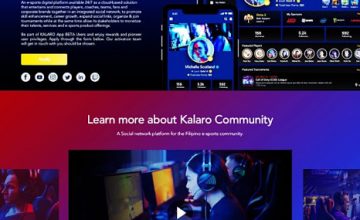It’s official: The University of the Philippines Diliman (UPD) will soon be offering the country’s first-ever Minor in Alternative Learning System (ALS) program. Starting next semester, students from various disciplines within UPD—including education, community development, art studies, psychology, European languages, and philosophy—can enroll in the program.
“Ito ang ambag ng aming kolehiyo sa ALS cause. Sana marami ring colleges [o] universities ang maki-ambag,” wrote UP College of Education (UPCEd) professor Mercedes Arzadon in a Facebook post. (“It’s our college’s contribution to the ALS cause. We hope this encourages other colleges and universities to follow suit.”) This is also in accordance with Republic Act 11510 mandating higher education institutions to establish undergraduate programs for ALS.
For a quick refresher, ALS is a parallel learning system that paves an alternative pathway for those who have no access to formal education. It aims to provide basic education and functional literacy (through flexible learning arrangements) for out-of-school youth and adults who are unable to attend formal schooling due to various reasons: geographic isolation, poverty, cultural barriers, and other similar circumstances.
As per the Alliance of Concerned Teachers, hiring more than 100,000 new teachers is a must to properly address the “teacher shortage” in the country. “We need to hire 147,000 new teachers to be able to lower the class size to 35,” said deputy secretary general Dana Beltran. But if this only accounts for traditional classroom setups, the number could even be higher when factoring in the need for community-based educators.
UPD’s new minor program seeks to bridge this gap by equipping students into becoming effective mobile (or community) teachers, instructional managers, administrators, material creators, researchers, resource generators, policy analysts, and advocates for ALS.
The importance of ALS specialization
According to the research report that justified UPCEd’s program proposal, most baccalaureate education degrees in the country only prepare future teachers for the formal school system—but not for non-formal learning. Currently, teachers who get hired to ALS posts don’t necessarily need to have an ALS-specific degree (or complete ALS units as a prerequisite to hiring).
However, specialized programs are essential to fulfilling the goal of Education for All in the UN global agenda: “No child left behind.” “Without intervention, those who study to become teachers, particularly the academically successful who pass university cutoff points, will not likely be channeled towards ALS where more of them are needed, but rather more to the formal system, where more of their learners are dropping out,” wrote the researchers.
UPD’s Minor in ALS program is a step in the right direction as it demonstrates the university’s commitment to contributing to the development of a more inclusive and equitable educational system in the country. Furthermore, it’s important for other academic institutions to embrace and support this movement, and to provide opportunities for students to explore and engage with alternative learning methodologies.
Read more:
‘No child left behind’ is DepEd’s battle cry. But why is there no allocated budget for SPED?
Why is ROTC not mandatory anymore? A look into the brutal history
Making English the medium of instruction doesn’t necessarily equate to quality education
Photos from UPCEd Professor Mercedes Arzadon
























Comments